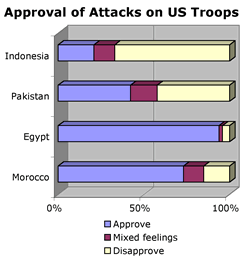Congresspedia Managing Editor's In These Times Cover Story
Submitted by Judith Siers-Poisson on


Submitted by Judith Siers-Poisson on

Submitted by Sheldon Rampton on
In the wake of the latest study showing heart attack risk in an FDA-approved drug, there have been increased calls for greater transparency of clinical trial results. What does the U.S. Food and Drug Administration think about requiring companies to publicly release all of their trial results?
Submitted by Conor Kenny on
Update: It's early, but the campaigns for the primaries of the 2008 congressional elections are starting to heat up, especially on the Democratic side, with everyone from Dennis Kucinich to Albert Wynn to
Submitted by Sheldon Rampton on

Submitted by Diane Farsetta on
Will it be "one of the most comprehensive screening programs ever to check whether chemicals can disrupt human hormones" or "a misleading $76 million waste"? The U.S. Environmental Protection Agency's (EPA's) Endocrine Disruptor Screening Program, which is slated to begin tests in 2008, is already controversial.
Submitted by Diane Farsetta on
U.S.
It was an eventful week on Capitol Hill, as many high-profile issues were debated and considered in both the House and Senate. Each chamber tackled legislation regarding the Iraq War, while the Senate began consideration of a comprehensive immigration bill. For an in-depth look at the bills considered in Congress since Monday, we again turn to Robert McElroy’s TheWeekInCongress.
After several months of debating a supplemental spending bill which would fund U.S. military operations in Iraq through fiscal year 2007 (September of this year), it now appears as though the Democratic-led Congress and President Bush are nearing an agreement.
Submitted by Judith Siers-Poisson on
Examining and exposing the activities of lobbyists and their firms is an important aspect of the Center for Media and Democracy's work. Now you can help, via our online collaborative encyclopedia, SourceWatch!
 In their groundbreaking 1988 book, Manufacturing Consent, professors Ed Herman and Noam Chomsky not only explained, but documented with extensive case studies, how mass media and public opinion are shaped in a democracy. Twenty years later, can their "propaganda model" still be used to explain modern media distortions? That was one of the main questions discussed last week at a conference in Windsor, Ontario, titled "20 Years of Propaganda?" Organized by Dr. Paul Boin, the conference drew hundreds of scholars and activists including myself, and more than 1,000 people attended a closing speech by Chomsky on May 17.
In their groundbreaking 1988 book, Manufacturing Consent, professors Ed Herman and Noam Chomsky not only explained, but documented with extensive case studies, how mass media and public opinion are shaped in a democracy. Twenty years later, can their "propaganda model" still be used to explain modern media distortions? That was one of the main questions discussed last week at a conference in Windsor, Ontario, titled "20 Years of Propaganda?" Organized by Dr. Paul Boin, the conference drew hundreds of scholars and activists including myself, and more than 1,000 people attended a closing speech by Chomsky on May 17.
Center for Media and Democracy (CMD)
520 University Ave, Ste 305 • Madison, WI 53703 • (608) 260-9713
CMD is a 501(c)(3) tax-exempt non-profit.
© 1993-2025